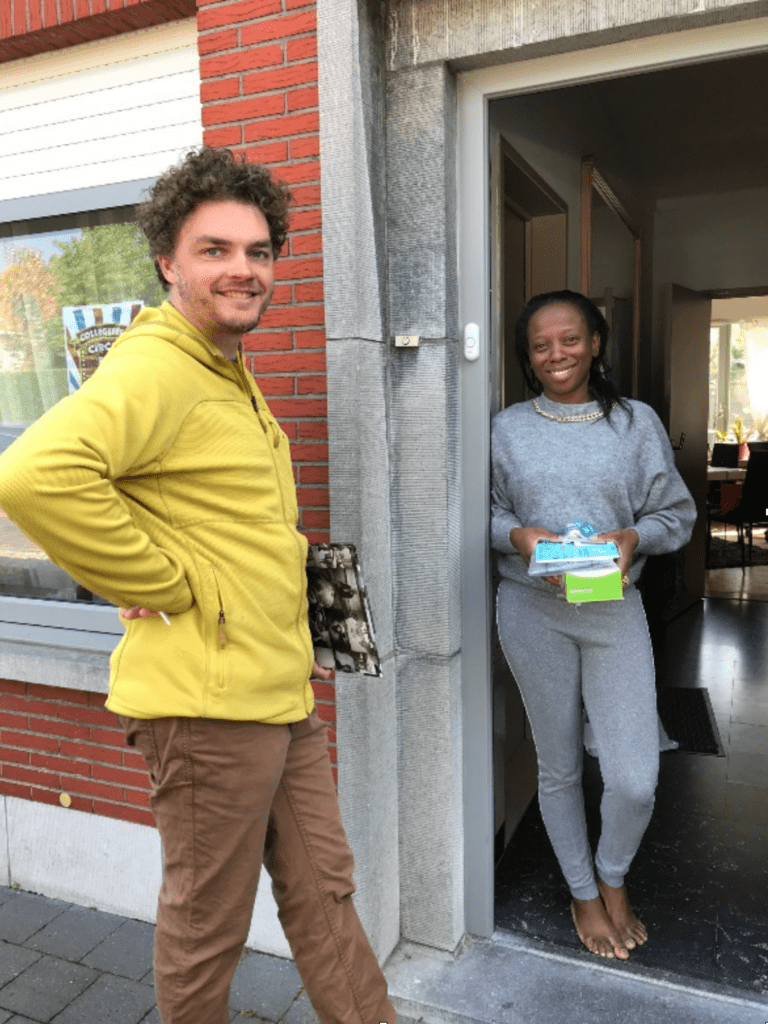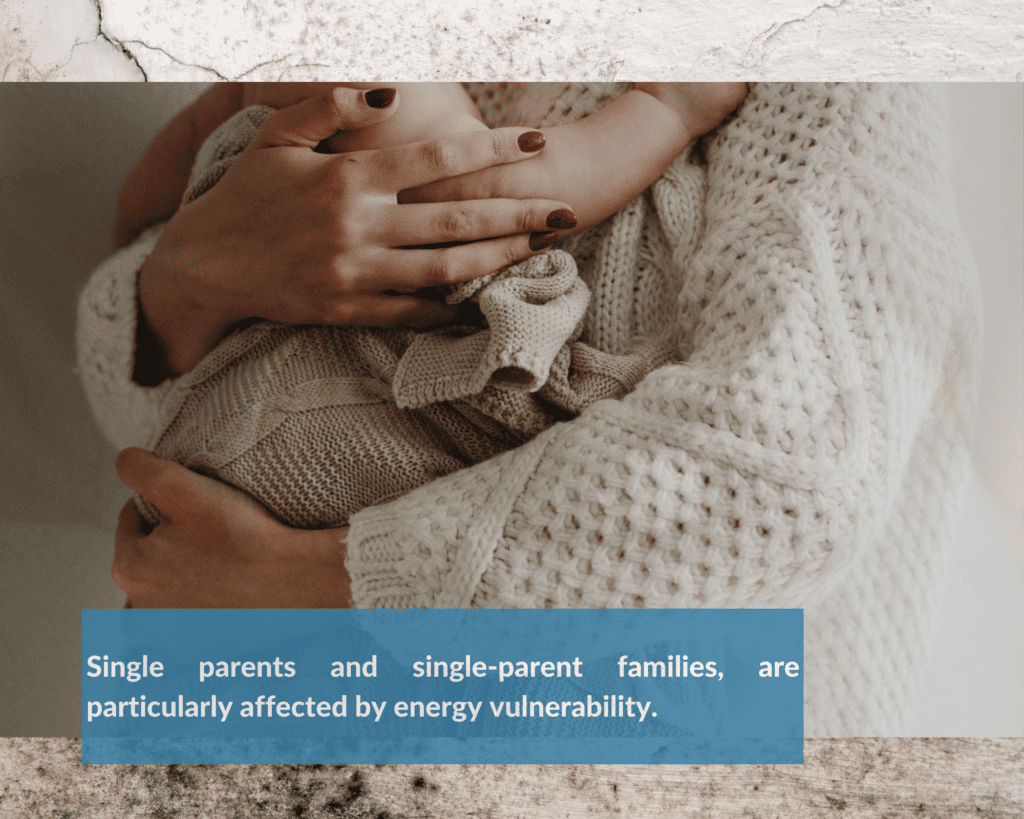The EnergyMeasures project uses a behavior change approach to mitigate energy vulnerability in seven European countries. At the halfway point of the project, the question arises: Is the chosen strategy working?
Hannah is a married woman and mother of four children in her early thirties. She lives in Turnhout, Belgium, and is studying hard for her accounting diploma. Currently, while energy costs are rising, she faces troubles to pay her familiy’s energy bills. Their living-room window does not open, which makes it very hard to ventilate correctly. The hall is not heated, and a mould problem above the front door has emerged. Hannah’s household is just one of tens of thousands of households in Europe affected by energy vulnerability. Through the EnergyMeasures project, Hannah receives help to reduce her energy costs.

EnergyMeasures is a Horizon2020 project addressing energy poverty in Belgium, Bulgaria, Ireland, the Netherlands, North Macedonia, Poland, and the United Kingdom. At core of the project is a household engagement programme in which the partners work with households to reduce their energy consumption and effective energy costs. The central objective of EnergyMeasures is to contribute to the alleviation of energy vulnerability through engaging energy poor households, deploying targeted small energy measures, designing tailored behaviour change plans, and providing on-going support for realising energy savings.
Diversity in energy consumption patterns
Hannah has been visited by Belgian partner Kamp-C and received a home meter that helps tracking the consumption, an eco-shower and a bag that she can use to show her kids how much water the shower uses every 10 seconds. From the beginning, the project set the goal of reaching a total of over 3000 households like Hannah’s. After the project kick-off in September 2020, it quickly became clear that the Covid protection measures across Europe would make it difficult to actively and personally contact households in order to develop and implement behaviour change plans with them. The household engagement phase could therefore only start much later than initially planned.
As we are now the half-way point of the project, we are undertaking a review of the activities to date – quantifying the numbers of householders involved, characterising types of changes undertaken, and considering the energy consumption implications. The question is: will the EnergyMeasures strategy have an impact on people’s purses? There is hardly a simple answer that applies to all of the participating project regions. The participating countries in EnergyMeasures are diverse in weather, energy sources available, the building stock, and household compositions. Cultural and social differences not only play an important role in the experience and use of energy, but also in the willingness to adapt behaviour.
Generalisations seems hardly useful
These differences became more and more apparent during discussions among the EnergyMeasures partners. Even within the individual cities and municipalities involved in the project, energy poverty is a complex and multi-faced problem. For example, in Eindhoven, where the municipality itself is a partner in EnergyMeasures: “If we look at the figures for the municipality of Eindhoven, we see that especially single people, single-parent families, people in social housing, people with a low income and people in houses built before 1969 are faced with energy poverty. It is difficult to make further generalizations to, for example, cultural or social background.”

Energy vulnerability is a growing problem across Europe. What the household visits in the EnergyMeasures project have clearly shown so far is that it pays to look closely so that energy poverty does not remain hidden. After all, unheated homes are not recognisable at first glance. However, the long-term consequences for the quality of life and health of their inhabitants are dramatic. “Sometimes energy poverty is a hidden problem. We see this when a household uses little energy. They choose not to turn on the heating or to prepare hot meals anymore to save on energy bills. What we often hear from our energy coaches is the shame that households feel.”
